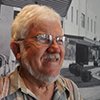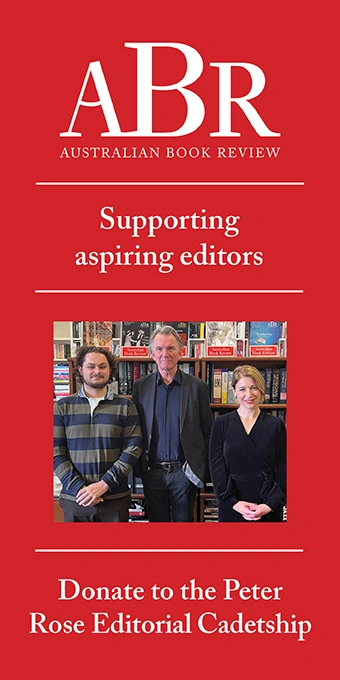Geoff Page
Geoff Page is based in Canberra. His books include 1953 (UQP 2013), Improving the News (Pitt Street Poetry 2013), New Selected Poems (Puncher & Wattmann 2013), Aficionado: A Jazz Memoir (Picaro Press 2014), Gods and Uncles (Pitt Street Poetry 2015), Hard Horizons (Pitt Street Poetry 2017) and PLEVNA: A Verse Biography (UWA Publishing 2016). He also edited The Best Australian Poems 2014 and The Best Australian Poems 2015 (Black Inc). His most recent books are in medias res (Pitt Street Poetry, 2019) and Codicil (Flying Islands Press, 2020)
Halfway through her first full-length collection, Babel Fish, Jillian Pattinson quotes Borges's famous argument: 'Myth is at the beginning of literature, and also at its end.' Her whole book does its best to embody this idea.
As its title 'Waterline' implies, the first group of poems here is loosely unified by water references, from the semi-scientific language of 'Communion' through to the T.S. ... (read more)
Kevin Hart was born in London in 1954, grew up in Brisbane, and worked in Melbourne before moving to the United States, where he still teaches (currently at the University of Virginia). Although he has won extravagant praise from Americans such as Charles Simić and Harold Bloom, he remains, to Australian readers, an Australian poet. This ‘new and selected’ from a university where he once taug ... (read more)
Writers who move in mid-career from one literary genre to another often encounter resistance. Some turfs are well guarded. They can also misapprehend the new form they are planning to join. John Upton, who for almost thirty years has been a successful playwright and screenwriter, has made the difficult move seamlessly in this first collection of poems.
... (read more)
Seeing people who remind you just a little of the dead is always mildly disconcerting –
something in the face, the gait, the shoulders from behind,those likenesses that don’t surprise
... (read more)
Evan Jones’s Selected Poems is more than timely: its author was born in 1931. In an introduction (or ‘Personal Appreciation’), fellow Melbourne poet Alex Skovron complains that ‘Evan’s work has not always received the attention it deserves, especially in recent years’. It is worth pausing a moment to consider why this should be so.
Jones is one of several highly talented poets associa ... (read more)
Just over fifty years since the death of the great American poet William Carlos Williams, it is pleasing to see so much of his spirit still alive in Cameron Lowe’s third collection, Circle Work. Williams was often short-changed by poets who, mistakenly, thought his short, ‘photographic’ poems easy to imitate. Lowe, by contrast, fully understands the importance of close observation and imagin ... (read more)
Todd Turner’s first collection, Woodsmoke, evolves intriguingly. It starts in the ‘anti-pastoral’ mode founded by Philip Hodgins. Here the poet, long since relocated to the city, looks back with tellingly evocative detail but a divided sensibility on the life he (it’s normally a ‘he’) has now abandoned.
... (read more)
Andy Kissane’s fourth collection, Radiance, is a heartening answer to those who, like publisher Stephen Matthews, lament that ‘many modern poets choose to shroud their work in point-scoring obscurity at a time when clarity and accessibility might encourage more people to read poetry’. Kissane doesn’t address this issue directly, but his book is an important negative instance.
The first vi ... (read more)
Personal Weather is Peter Bakowski’s seventh collection, yet he remains impossible to categorise. His is a distant relative of Ken Bolton’s conversational style, while also a close cousin to central European poetry. His poems can be three-page narratives or urbanised haiku. Above all, Bakowski is a poet of wonder – wonder at the contradictions and complexity of life as it passes him by. He i ... (read more)





